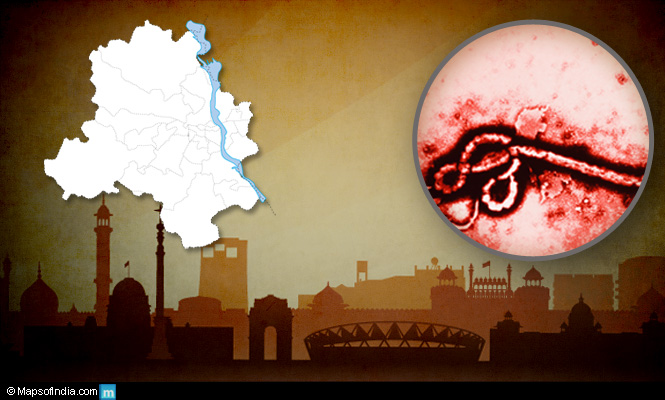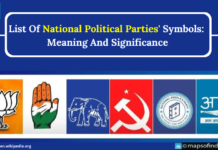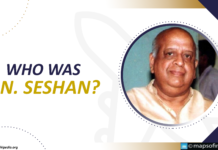 The Union Health Minister has stated that a total of 44,700 Indians live in Ebola-affected countries including 300 troops from the Central Reserve Police Force. Delhi, being the Capital, trade hub and home to an international airport, is quite vulnerable to Ebola virus. Hence the Capital must have a fool-proof strategy in place to detect and control the spread of this deadly disease. Though initial screening is being carried out at the airport and a few measures have been taken, but can this be said with certainty that Delhi is fully prepared to handle an Ebola outbreak.
The Union Health Minister has stated that a total of 44,700 Indians live in Ebola-affected countries including 300 troops from the Central Reserve Police Force. Delhi, being the Capital, trade hub and home to an international airport, is quite vulnerable to Ebola virus. Hence the Capital must have a fool-proof strategy in place to detect and control the spread of this deadly disease. Though initial screening is being carried out at the airport and a few measures have been taken, but can this be said with certainty that Delhi is fully prepared to handle an Ebola outbreak.
Ebola is one of the deadliest diseases on the earth with a very high fatality rate. Till date there is no effective medicine against the disease. Extraordinary measures are required to be taken to control its spread. The World Health Organization has also announced that no country should underestimate Ebola.
Brief epidemiology of Ebola virus
Ebola is a viral disease like Dengue with flu like primary symptoms such as high fever, body ache, headache. Later it leads to haemorrhage (bleeding from different parts of the body) and ultimately death.
As infection is fast fatality rate of Ebola disease is very high. Out of every 100 infected, almost 90 patients eventually die.
The virus was first detected in Nzara, Sudan, and in Yambuku, Democratic Republic of Congo in 1976. Though confined to the tropical regions of Sub-Saharan Africa, a few cases have also been reported in other countries. As per the WHO, Ebola death toll has risen to 7,693 and total of 19,695 cases have been reported so far.
Why India and Delhi are at risk?
India has no history of Ebola virus and thus people are not immune to it. This is one of the factors that can lead to a major outbreak. There are chances that visiting Indians living in Ebola-affected countries may bring the deadly virus to Delhi and other parts of India. Because of uncontrolled distribution of population, unavailability of adequate and affordable healthcare facilities for the large majority of common people and lack of awareness, the disease can spread quickly and can be devastating.
Measures taken
The Health Minister has assured that every possible precautionary measure has been taken. The advance surveillance and tracking systems have been installed. Screening of passengers coming from Ebola-affected countries is being carried out at the airport.
Airport health officers at Delhi, Mumbai, Bengaluru, Chennai, Thiruvananthapuram and Kochi have screened 9,207 passengers till August 10. At Delhi airport, traces of Ebola virus were found in the semen sample of a 26-year old Indian coming from Liberia. He was then kept in isolation at Delhi’s airport quarantine centre.
Ram Manohar Lohia Hospital in Delhi has been assigned the responsibility of handling Ebola patients.
Indian missions are contacting Indian residents living in Ebola-affected countries and providing them instructive materials to take preventive measures.
Delhi’s history of handling epidemics
Let’s take the past history of epidemics in Delhi and see how the Capital had handled these, before concluding if the measures taken by the Government are enough to manage an Ebola outbreak in the Capital.
In the year 1996 Dengue epidemic (Dengue Haemorrhagic Fever (DHF) and Dengue Shock Syndrome (DSS) ) struck Delhi from mid-August to end-November. This was the worst outbreak of Dengue in India. There were more than 10,000 reported cases and 400 deaths. Many factors led to this situation like ineffective mosquito control programmes, excessive population growth, uncontrolled urbanization and insufficient medical and health services.
For the past few years the Municipal Corporation of Delhi and the New Delhi Municipal Council have been doing house-to-house survey, carrying out anti-larval operation and intensifying health education activities. Despite taking numerous control measures, Delhi faces the Dengue challenge each year.
It clearly shows that Delhi is not fully prepared and equipped to handle epidemic. You can imagine the danger of leaving just one patient undetected at the airport. Based on previous history of epidemics in Delhi and India it cannot be said with certainty that these preventive measures and precautions are enough to keep Delhi away from Ebola. Though we should not panic but we definitely need to be more vigilant and hospitals need to be well-equipped to handle the worst situation.
Related Information:
‘Leptospirosis’: A Deadly Disease in the Andamans
Japanese Encephalitis in India – Guidelines for Prevention, Control & Symptoms
Swine Flu Continues to Ravage India
Ebola Virus Outbreak – Is India Prepared?
India To Be Certified As A Polio-free Nation By WHO
Non-Communicable Diseases – Take Care, Before It’s Late
Swine Flu: What You Need to Know and Do
Prevention of Heart Attack and Other Related Heart Diseases
Leprosy – Causes, preventions and eradication programme
Prevalence of Diabetes in India
The Fever : Vaccination Still An Elusive Proposal
A Reality Check on State of Mental Health in India
Sharp rise in non polio Acute Flaccid Paralysis after polio-free status
Growing Problem of Asthma in India
Green Tea: Types, Benefits and Side Effects
How to Prevent Hair Loss in 10 Tested Ways?




